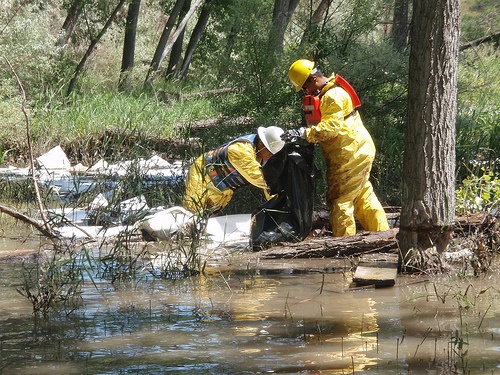We have much more to do and your continued support is needed now more than ever.
Exxon’s Yellowstone Debacle Gets Worse
You can add another “F” to the the oil industry’s environmental report card, this time stemming from Exxon’s disastrous pipeline spill in the pristine Yellowstone River. From the Associated Press:
BILLINGS, Mont. – Delays in Exxon Mobil Corp.’s response to a major pipeline break beneath Montana’s Yellowstone River made an oil spill far worse than it otherwise would have been, federal regulators said in a new report. The July 2011 rupture fouled 70 miles of riverbank along the scenic Yellowstone, killing fish and wildlife and prompting a massive, months-long cleanup. The damage could have been significantly reduced if pipeline controllers had acted more quickly, according to Department of Transportation investigators.
This news doesn’t come as a surprise — in fact, it perfectly fits the pattern of botched responses to pipeline accidents previously set by Enbridge, Inc.’s Kalamazoo River calamity and TransCanada’s 6-story tar sands geyser in North Dakota. And as NWF documented in the shocking report “Assault on America,” it really looks like business as usual for an industry whose profits continue to soar despite being the world’s biggest contributors to climate change and habitat destruction. And with thousands of miles of new pipe slated for construction, it’s only going to get worse if Exxon and its buddies get their way.

We’ve come to realize that this stuff happens all the time, in communities across the country. National Wildlife Federation is working hard to stop new tar sands pipelines and get stronger rules in place to make existing pipelines safer. You can help — tell the White House to protect Americans (and America’s wildlife) from spills and the threat of climate change by rejecting the Keystone XL pipeline, which is not only a dangerous project but will also set precedent for future pipeline decisions. Exxon, Enbridge, and TransCanada have proven beyond a doubt that they can’t handle their own technology. It’s time to say “No More!”
![]() Speak up for people and wildlife! Tell the President to reject Keystone XL!
Speak up for people and wildlife! Tell the President to reject Keystone XL!





















